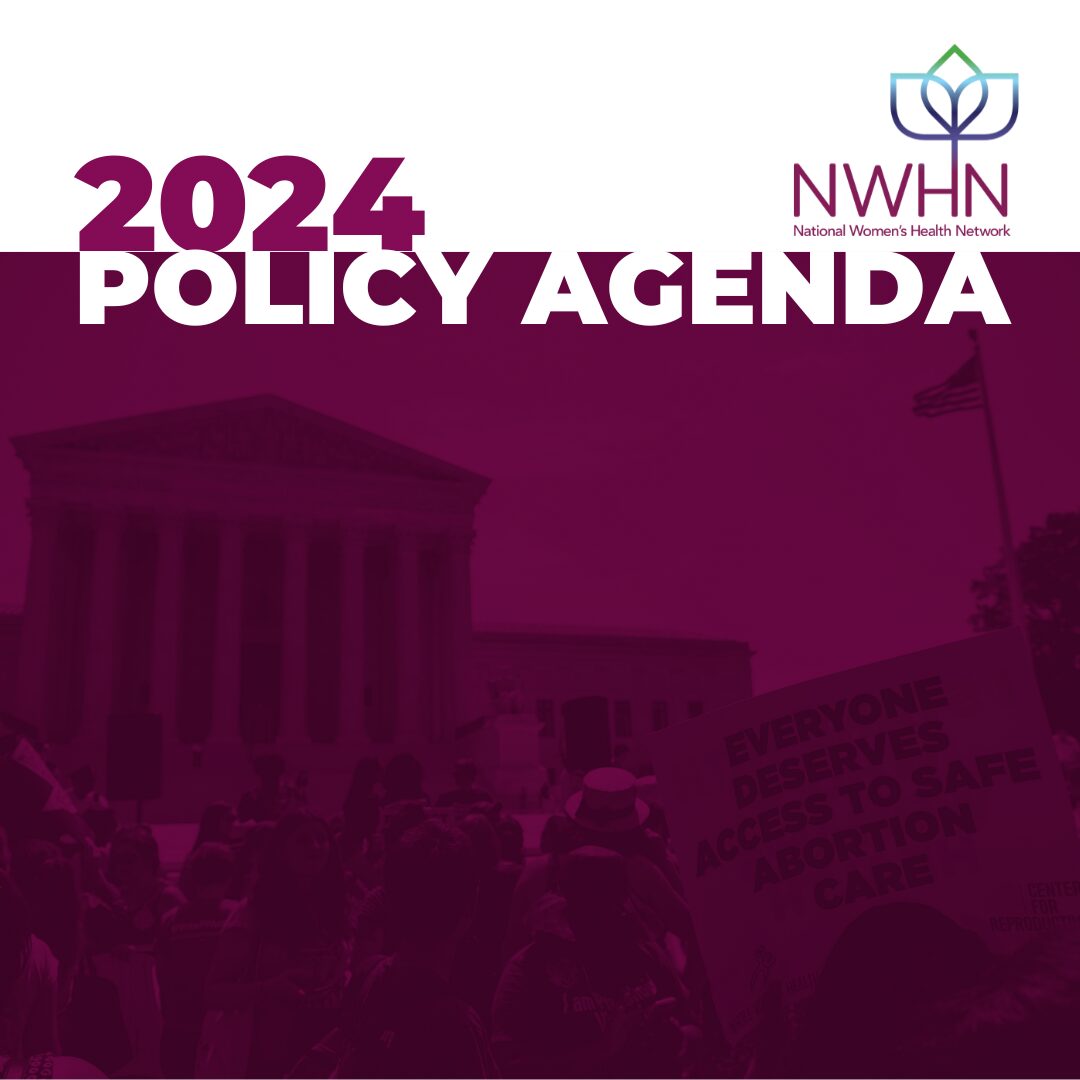
Campaigns, Policy Updates
The National Women’s Health Network’s 2024 Policy Agenda
January 24, 2024
---
Deep Dive Articles
Publication Date: December 14, 2020
By: Cindy Pearson and Sarah Christopherson

December 17, 2020
After careful examination of the data submitted to the FDA on the Moderna vaccine, the NWHN has the same concerns about this vaccine as we do with Pfizer/BioNTech’s. You can read our full comment to the FDA Advisory Committee here. One material difference between the Moderna vaccine that may help with distribution logistics is that it can be stored at a comparatively higher temperature not requiring dry ice. The NWHN also had these additional analysis points to add after listening to all Moderna testimony, which applies to both vaccines:
December 14, 2020
Yesterday, the FDA’s vaccine advisory committee voted 17-4 (with one abstention) to recommend emergency use authorization of the COVID-19 vaccine developed by Pfizer/BioNTech. The FDA will almost certainly grant this authorization soon, which would allow health care workers and other high-risk members of the public to start getting the vaccine in just days.
Sarah Christopherson, Policy Advocacy Director for the NWHN, was present throughout the full 9 hours of the committee’s deliberation, and testified before the panel. (You can read her full statement here, which once again struck a chord with major news outlets nationwide, including the New York Times!) To evaluate the new vaccine’s safety and efficacy, the NWHN used our expertise as a long-time FDA watchdog to analyze the following criteria. Here are the highlights:
Did Trump’s blatant pressure on the FDA undermine the process?
Probably not. We have observed the FDA approval process for 45 years, and applaud this round of action for the FDA’s incorporation of experts, data, and the public into the hearing and advisory process. The White House had pushed to skip the advisory committee process and speed through with a shorter window for evaluating safety but the FDA rejected both attempts.
Did the company test the vaccine in enough women?
Yes. Women accounted for nearly half of vaccine recipients in the safety and efficacy data submitted to the FDA.
Yes and no. The NWHN believes that Pfizer submitted sufficient data to the panel to draw good conclusions for some of the groups hardest hit by the virus, including seniors and the Latinx community. However, Pfizer’s data included fewer than 2,000 “Black or African American” vaccine recipients and just 131 “American Indian or Alaska Native” recipients-not counting the placebo control population. The safety data included just 206 Black seniors aged 65 or older and just 101 American Indian or Alaska Native people of any age, even though Black and Indiginuous communities have been among those most impacted.
Does the vaccine seem safe in the people who were tested?
Yes. Many recipients reported unpleasant short-term side effects like fever, chills, pain, and fatigue but there were no grave safety concerns.
Does the vaccine work in the people who were tested?
Yes. Initial data shows that the vaccine is 95% effective, far above the FDA’s stated mandatory minimum effectiveness rate (50%), for approval to be considered. Though it’s too early to know how long immunity lasts.
Is the vaccine safe for pregnant people or minors?
We don’t know. Pregnant people were not represented in the initial trials, and so we cannot comment on the vaccine’s safety for this population. Too few children aged 12-15 and 16-17 were included in the data submitted to the FDA to assess whether the benefits outweigh any risks.
Conclusion
The NWHN ultimately supports the emergency authorization of the Pfizer vaccine by the FDA. However, transparency now and going forward is key, and we urge the FDA to keep the public informed about the vaccine’s safety, efficacy, and side effects as it is distributed at scale. The NWHN will continue to hold the FDA accountable to transparency and scientific rigor as our country employs this long-awaited tool to fight the virus.
Cindy Pearson has served as the NWHN’s Executive Director for 25 years. One of the most respected women’s health advocates in the country, she regularly testifies before Congress, the NIH, and the FDA. Cindy is often featured as a consumer expert on women’s health issues in news publications and for conferences and currently serves as President of the Board of Directors for Women’s Health Specialists.
Sarah Christopherson, MA, is the Legislative Director for the social justice campaign, Americans for Tax Fairness, and the NWHN’s former Policy Advocacy Director. Her 10 years working for Congress and her deep knowledge of health policy and consumer protection make her the NWHN’s issue area expert on federal health reform implementation and defense, drug and device safety and efficacy, and sexual and reproductive health.
